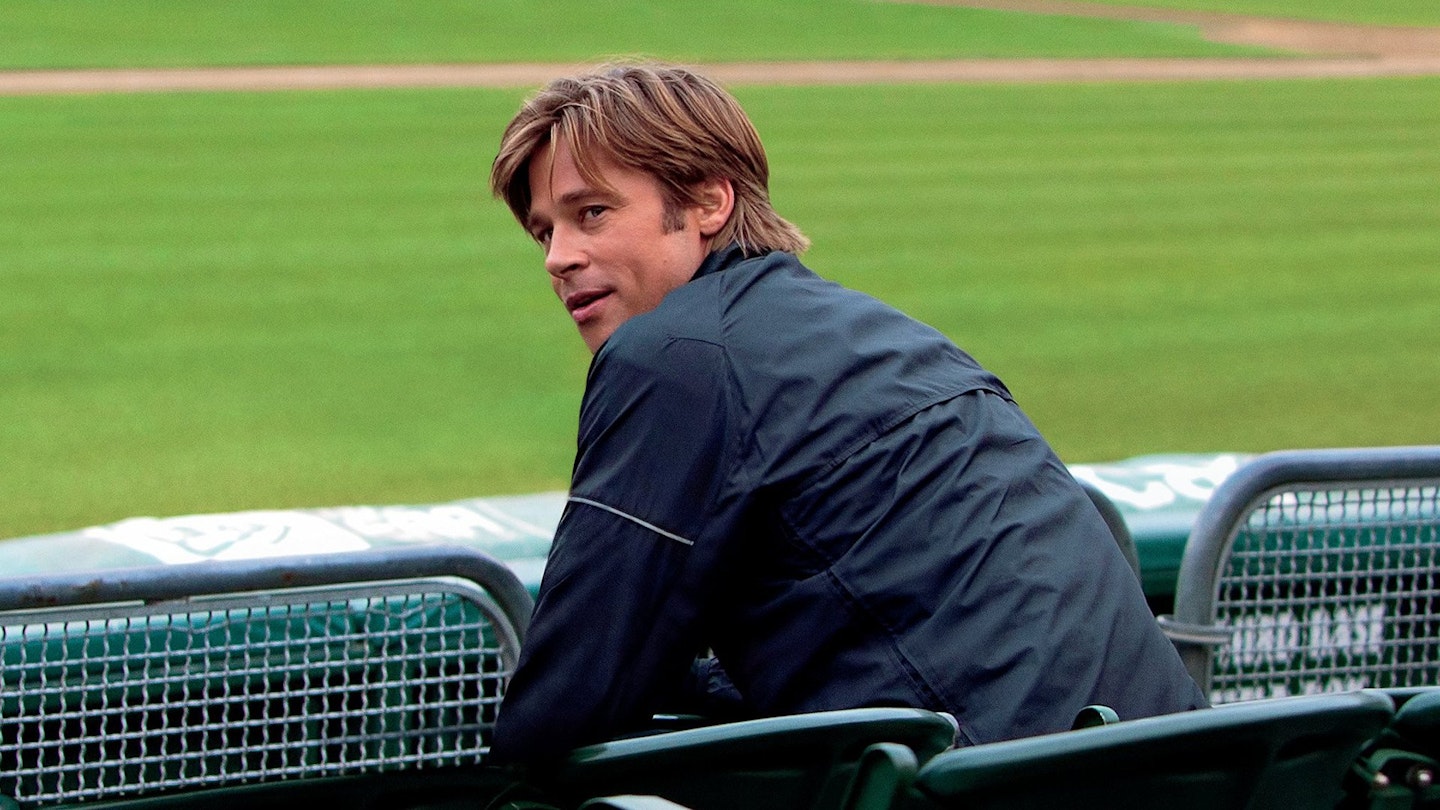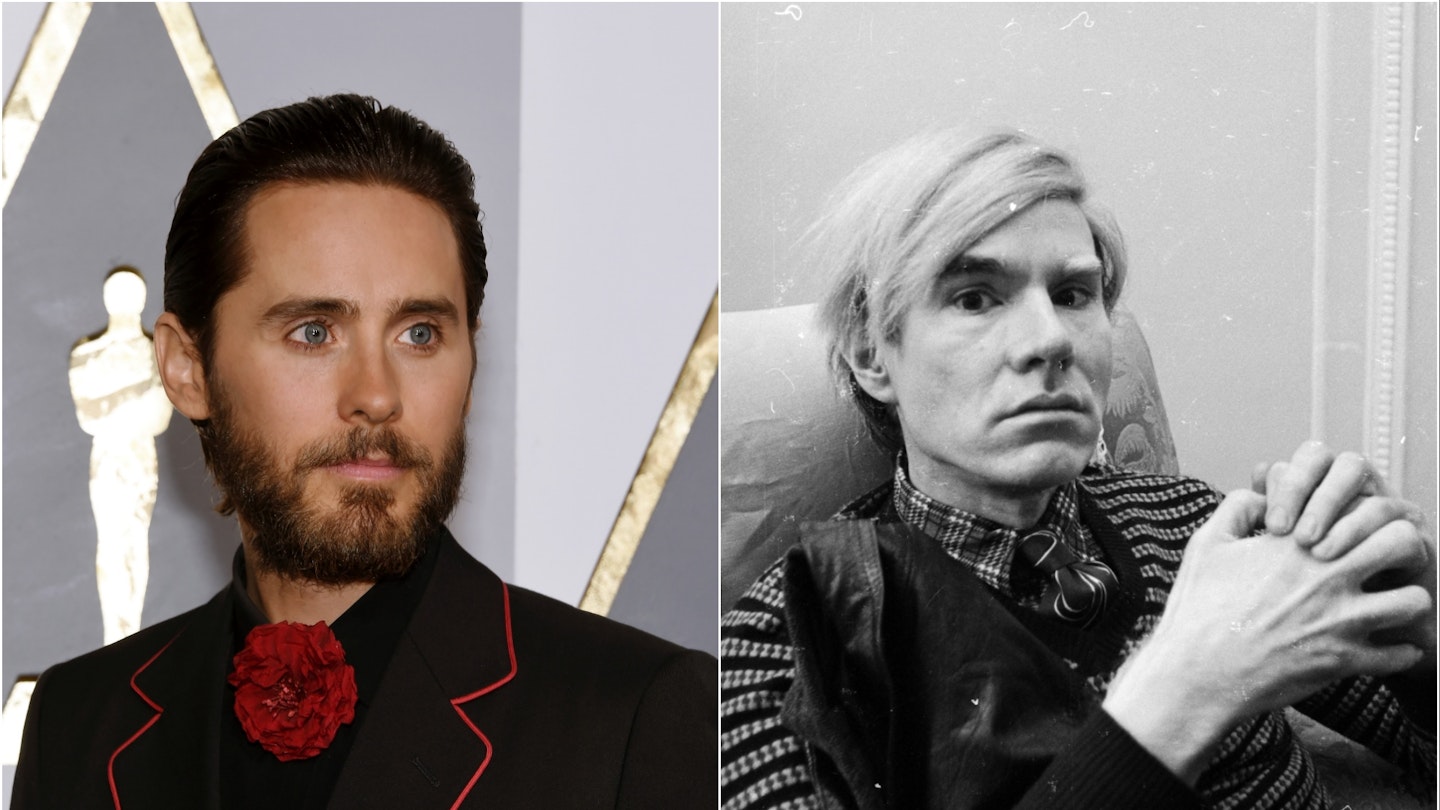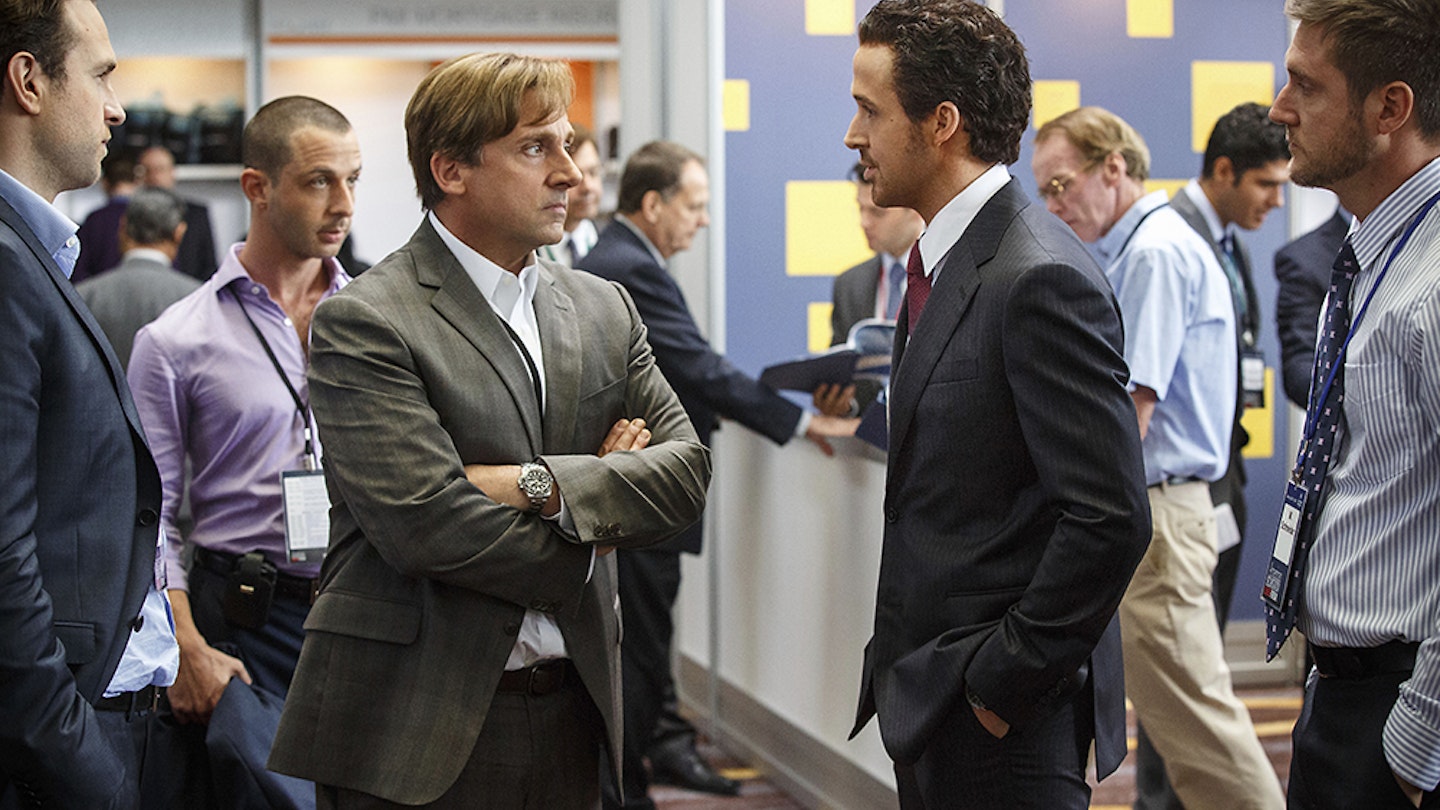There are many marks that a great sports movie has to hit. They’re not even really clichés, just essential parts without which the movie will not work. There must be an underdog for whom to root. There must be at least one game in which it seems like the central team will lose everything, but then they claw it back. Similarly, there must be a game in which they seem to have things sewn up and then it all goes wrong. There must be a cocky player who gets knocked down to size. There must be a bit of a speech in the locker room. You could take those out for originality’s sake, but your film will be less satisfying for it. Moneyball has all these things, but what makes it particularly interesting is that it largely lacks something on which most sports movies rely: sport.
Moneyball isn’t a movie about what happens on the pitch; it’s about what happens off it. It’s about an attempt not to win the big prize, but to change everything, to leave behind not a packed trophy cabinet but a legacy. Brad Pitt is Billy Beane (a name so aw-shucks trite that it can only have been real), the general manager of the Oakland A’s, a team with a history of never quite making history. With a comparatively tiny budget, he keeps losing his best players and can’t afford to buy more. But in the middle of a failed negotiation to buy someone cheap from another team, he happens across owlish young analyst Peter Brand (a smartly underplaying Jonah Hill) who calculates the value of players not according to their ability to catch/run/hit a ball three states, but on their ability to just get on base and therefore increase the likelihood of runs. With Brand’s intricate formulas and big charts, the pair set to piecing together a team of unfancied players who have various defects but enough complementary skills to make a great team, even if they are not a team of great players. They are the broken biscuits of baseball.
We don’t really get to know any of these team members especially well, because they don’t really matter. We meet one, to establish that Beane’s little experiment is changing some lives for the better, but their personal triumphs aren’t important, to the point that we barely see them play. What is important is whether Beane and Brand’s gamble is working, whether they can prove to the numerous old men of the game — shown in a number of excellently cranky scenes of Pitt around the table with his ancient advisors — that new thinking can work. That’s not really the stuff of sports movie glory. How can you have the catharsis of the win without getting right into the game? But that comes from Beane, a former player who never fulfilled his potential, finding another way to leave his mark. It’s a movie about second chances and showing that your obvious skills are not necessarily your greatest gifts.
Making stats not just interesting but exciting is a hugely difficult task — there are few things duller than graphs and PowerPoints. You don’t punch the air because a formula turned out to be correct. But the script, by Steven Zaillian and Aaron Sorkin, digs into the emotion and determination of the two men. Sorkin can whittle a line like few other writers but he can tend towards making his characters talk like absolutely everybody’s listening. In Moneyball it’s dialled down; the wit more throwaway than Sorkin is usually given to. It lightens the whole film, and the very best moments are not defined by their dialogue but their flow. The film’s stand-out scene comes as Beane negotiates — almost bluffs — his way through a deal across three different clubs and three different phones. He starts out with absolutely nothing, but by knowing when to speak and when to shut up he comes out on top. It’s the perfect encapsulation of Beane and why he’s the team you will to win through the film: he will battle his way out of every corner, flinging out charm and bravado until he gets his way. You’re cheering him to victory in the dying seconds.
Pitt has stuck with this movie through several directors (Steven Soderbergh and Devil Wears Prada director David Frankel both came close to making it) and several years of studio foot-shuffling. His persistence has paid dividends with what will likely be one of his most enduring roles. His almost goofy charm keeps Beane from being unsympathetically cocky, always a risk with characters with such a dick-waving job. The direction of Bennett Miller (Capote) is efficient and judicious rather than dazzling but lets the innate quality of his constituent parts shine. He’s headed a complicated movie about the science of sport and made what is, for all its lack of action on the diamond, the most uplifting, exciting sports movie since Friday Night Lights.








